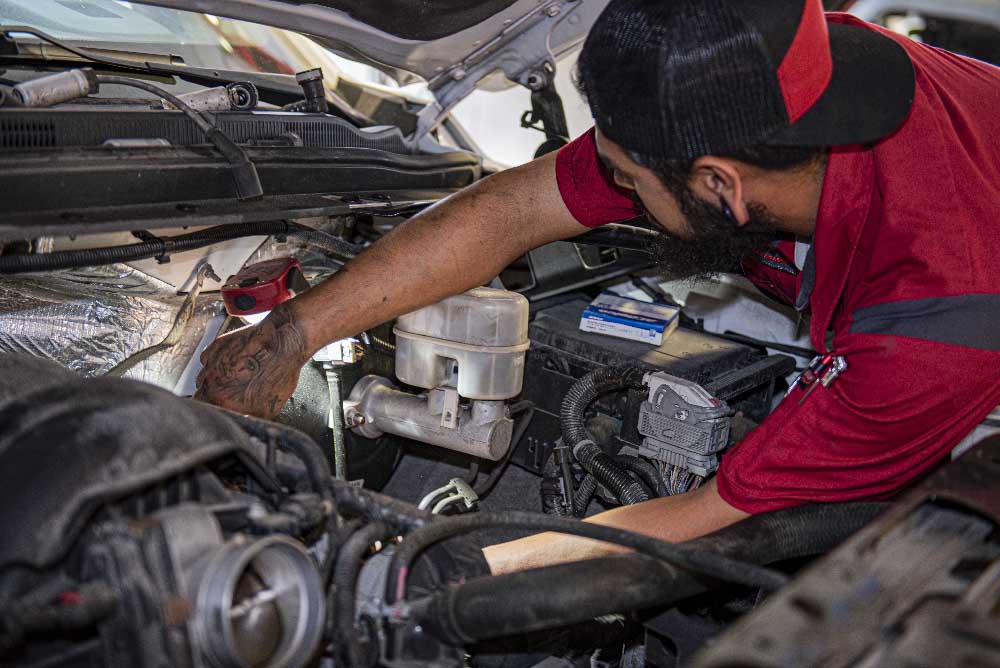In the realm of automotive care, a full-service auto shop stands as a vital resource for vehicle owners seeking comprehensive maintenance and repair solutions. Unlike specialized shops that focus on specific services like oil changes or tire rotations, a full-service auto shop offers a wide array of services under one roof. From routine maintenance tasks such as oil changes and brake inspections to complex repairs involving engine diagnostics and transmission overhauls, these establishments cater to both the preventive and corrective needs of vehicles. This holistic approach ensures that customers can address all their automotive concerns conveniently and efficiently.
Key Services Offered
Full service auto shop encompass a diverse range of services designed to keep vehicles in optimal condition. Routine maintenance forms the cornerstone of their offerings, encompassing tasks like fluid checks, tire rotations, and alignments, all crucial for extending the lifespan of tires and maintaining safe handling. Diagnostic services are another critical aspect, involving the use of advanced technology to identify and rectify issues such as check engine light diagnostics or electrical system malfunctions. Additionally, these shops specialize in repairs ranging from brake replacements to engine and transmission repairs, addressing mechanical issues that impact performance and safety.
Expertise of Technicians
Central to the operation of a full service auto shop are skilled technicians who possess a blend of technical expertise and hands-on experience. These professionals are typically ASE (Automotive Service Excellence) certified, signifying their proficiency in automotive repair and maintenance. Their training allows them to handle various makes and models of vehicles, ensuring that each customer receives tailored solutions based on their vehicle’s specific needs. Whether it’s diagnosing complex engine problems or performing intricate electrical repairs, these technicians bring precision and reliability to every service they undertake.
Importance of Regular Maintenance
Regular maintenance is emphasized within full-service auto shops as a proactive measure to prevent costly repairs and ensure vehicle longevity. Services such as oil changes, fluid flushes, and filter replacements are scheduled based on manufacturer recommendations, keeping engines running smoothly and efficiently. Moreover, routine inspections of brakes, suspension, and steering components help detect potential issues early, mitigating the risk of sudden breakdowns and enhancing overall safety on the road. By adhering to a structured maintenance schedule, vehicle owners not only maintain peak performance but also protect their investment in their automobiles.
Customer-Centric Approach
One of the distinguishing features of full-service auto shops is their commitment to customer satisfaction and service excellence. From the moment customers walk in, they are greeted by knowledgeable staff who prioritize listening to their concerns and understanding their vehicle’s symptoms. Clear communication is paramount throughout the service process, with technicians explaining recommended repairs and providing transparent cost estimates upfront. This transparency builds trust and empowers customers to make informed decisions regarding their vehicle’s maintenance and repair needs.
Quality Assurance and Warranties
Reputable full-service auto shops uphold stringent standards of quality assurance, using only OEM (Original Equipment Manufacturer) or equivalent parts and state-of-the-art diagnostic equipment. This commitment to quality extends to warranties offered on both parts and labor, providing customers with peace of mind knowing that their repairs are covered in the event of unforeseen issues. Such warranties underscore the shop’s confidence in its services and reinforce its dedication to standing behind the work performed, fostering long-term relationships with satisfied customers.
Choosing the Right Auto Shop
Selecting the right full-service auto shop involves considering several factors to ensure a positive and rewarding service experience. Reputation plays a pivotal role, with recommendations from friends, family, or online reviews providing valuable insights into the shop’s reliability and service quality. Certifications such as ASE certification validate the expertise of technicians, while the cleanliness and organization of the facility reflect professionalism and attention to detail. Additionally, evaluating customer service practices and the shop’s commitment to transparency can help gauge how well the shop aligns with individual preferences and expectations.
Conclusion
In conclusion, a full-service auto shop serves as a cornerstone of automotive care, offering a comprehensive range of services designed to meet the diverse needs of vehicle owners. From routine maintenance to complex repairs, these establishments provide expertise, convenience, and reliability, ensuring that vehicles remain safe, efficient, and dependable on the road. By entrusting their vehicles to a reputable full-service auto shop, customers not only benefit from skilled technicians and quality service but also gain peace of mind knowing that their automotive needs are in capable hands. Embracing the services of a full-service auto shop is not just about maintaining vehicles; it’s about investing in their long-term performance and safety.
This structured approach should provide a thorough and informative overview of what a full-service auto shop entails, its benefits, and considerations for potential customers.
thorough and informative overview of what a full-service auto shop entails, its benefits, and considerations for potential customers. This structured approach should provide a
overview of what a full-service auto shop entails, its benefits, and considerations for potential customers.This structured approach should provide a thorough and informative
